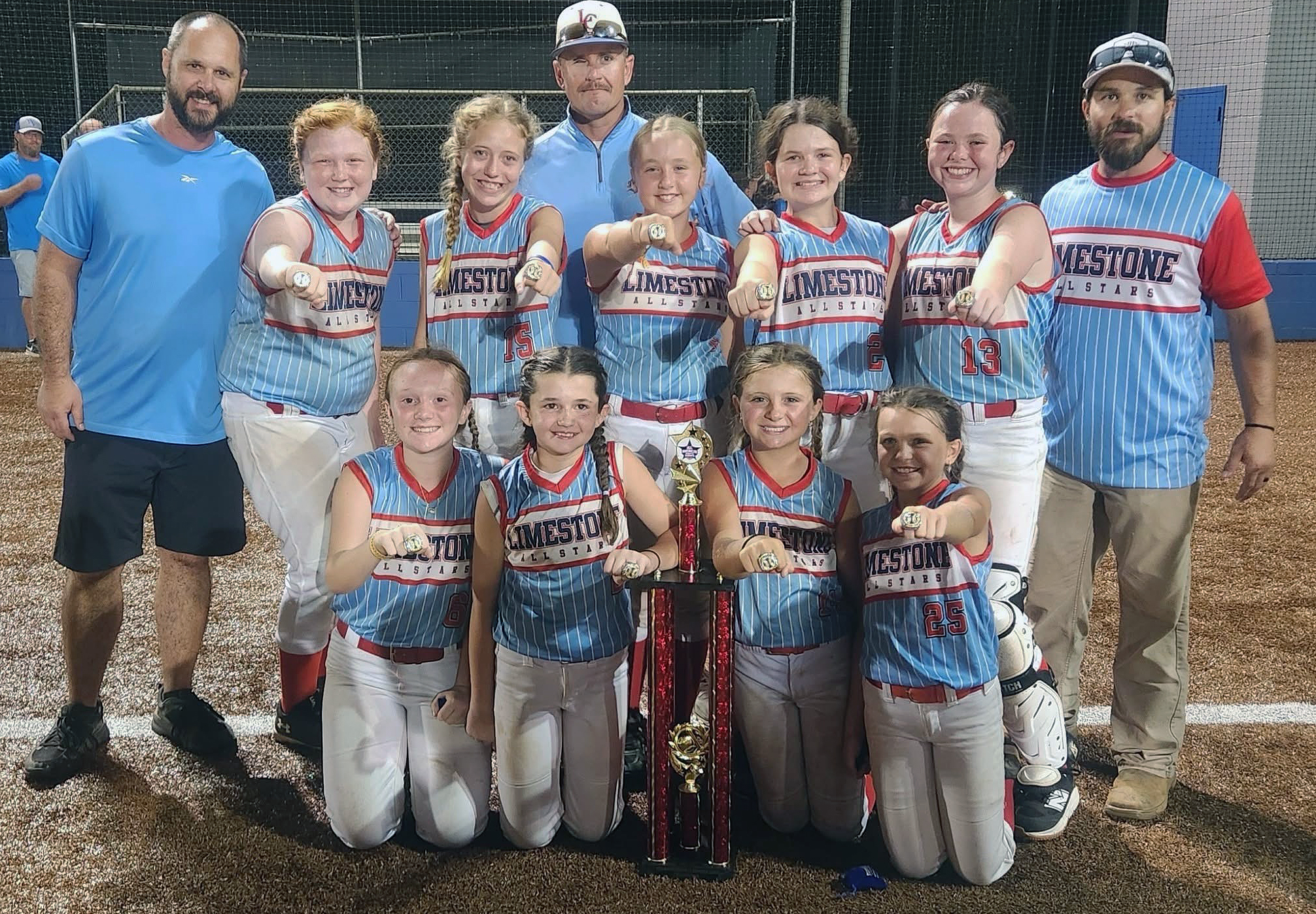Fans, experts recall stormy Iron Bowl of 1983
Published 5:55 pm Thursday, November 24, 2011

- Fans, experts recall stormy Iron Bowl of 1983
Editor’s note: With strong-to-severe storms possible this Iron Bowl weekend, The News Courier decided to look back at the 1983 Iron Bowl, played on Dec. 3 that year. Some may remember the game for Bo Jackson’s 71-yard touchdown run to seal Auburn’s 23-20 victory over the Crimson Tide. Others may remember that Legion Field, the site of the game, was briefly under a tornado warning.
Trending
It could be said the Iron Bowl’s importance to Alabamians is so great, not even a tornado could tear their attention from arguably the biggest college football rivalry.
In 1983, the reality of a super cell thunderstorm over Legion Field in Birmingham had little effect on tens of thousands of Auburn and Alabama fans.
On Saturday, the two teams will play in Auburn under what could be similar circumstances. A cold front moving through the state could bring severe weather, but is not expected to impact the game’s 2:30 p.m. kickoff time.
A stormy start
Both teams made headlines leading up to the stormy game in 1983, but not for on-field accomplishments. The Iron Bowl that year was the first played after the death of legendary coach Paul “Bear” Bryant, who died Jan. 26 at age 69.
Auburn head coach Pat Dye also made headlines prior to the start of the season by becoming the first SEC coach to require blood and urine drug tests. The team also suffered a tragedy after fullback Greg Pratt collapsed after a running drill and later died.
Trending
Prior to the Iron Bowl, Auburn had lost only one game, a 20-7 rout at the hands of Texas in the second game of the season. The team had several standouts and future pro athletes, including Bo Jackson, Al Del Greco and Kevin Greene.
Alabama, under head coach Ray Perkins, had suffered losses to Penn State, Tennessee and Boston College prior to the Iron Bowl. The Tide had several standouts as well, including fullback Ricky Moore and quarterback Walter Lewis.
Historic game
In the 28 years since the game was played, the memories of those who attended the 1983 Iron Bowl have grown fuzzy. What most do remember, however, was the weather and Jackson’s 71-yard touchdown run.
Athens resident and Auburn fan Charles Owsley was sitting in the upper deck of Legion Field during the game.
“It was a beautiful day and the sun was shining,” he said. “Quarter by quarter, it got darker and darker.”
His most vivid recollection was the high winds and rains that blew into the stadium in the third quarter. He said the chaotic wind was at Auburn’s back in the third quarter, and when the fourth quarter began and the teams changed ends of the field, the wind had shifted and was again at Auburn’s back.
Mike Wilhelm, a Huntsville resident and weather blogger, was also at the game and remembers the change in the weather. He was in high school at the time and attended with a friend.
“The wind was crazy and blew the ball off the tee right as Al Del Greco was about to kick off,” he said. “That was when the leading edge of the storm was just coming in and the rain was so intense that it hurt to look toward the field.”
Birmingham-area meteorologist James Spann said the severe weather outbreak at the game followed a long night of heavy rain. He said there was major flooding the previous night and into the morning.
The sun broke out during the midday hours, and hit a high of 68 degrees, about 5 degrees higher than average for early December. He said new storms formed over West Alabama by mid-afternoon, and one of those moved into the Birmingham-metro area during the game’s second half. The storm showed strong signs of rotation, so a tornado warning was issued.
“There was very poor communication in 1983,” Spann said. “I spoke with Walter Garrett, who was in charge of Legion Field back then, and he knew nothing about a tornado warning, and most of the TV people and school officials had no idea either.”
Legion Field public address announcer Simpson Pepper read the warning to the fans in attendance, but those who were there don’t remember anyone rushing to a place of safety.
“When they announced it, I would have rather not known because you couldn’t go anywhere,” Wilhelm said. “For the most part, people stayed right where they were.”
Owsley said a few people might have left to seek shelter, but most were too interested in the close game to give much thought to personal safety.
Author Will Collier, who co-wrote “The Uncivil War” about the Iron Bowl rivalry, said the strong winds at the stadium were actually causing the upper deck of Legion Field to sway. The heavy rains at the field created a muddy mess that resulted in turnovers for both Auburn and Alabama.
Prior to Jackson’s run — which would prove to be the last score of the game — Auburn was down 20-16. When the game ended, Collier said Jackson used the sloppy conditions to celebrate.
“As the clock ran out, Auburn was on defense and Bo Jackson was laying on his back, splashing in the water like a little kid,” he said. “He was just dominant as a sophomore.”
Following Auburn’s victory over Alabama in the 1983 Iron Bowl, the Tigers beat Michigan in the Sugar Bowl, 9-7, and finished the year 11-1.
Tragedy averted
If there was a tornado in the storm that passed over Legion Field that night, it didn’t touch down in the area. A tornado did touch down later that evening in Oxford, striking a Winn-Dixie and killing two people.
“The threat of severe weather and tornadoes during a major sporting venue is a nightmare scenario,” said Spann, who attends all the Alabama home games and provides weather support for Alabama Crimson Tide Sports Marketing. “We believe every fan at the game has the right to know there is a tornado warning in effect, and to take action to protect their family. Most universities now have good plans in place.”
He said there have been other close calls, including a Colorado vs. Iowa State game in 2005. A tornado also moved through downtown Atlanta during the SEC basketball tournament in 2008 and damaged the Georgia Dome.
“No doubt we are in much better shape to handle this kind of thing today with better technology,” Spann said. “Most fans can get warnings on their phones via Twitter, Facebook, apps, etc.”





